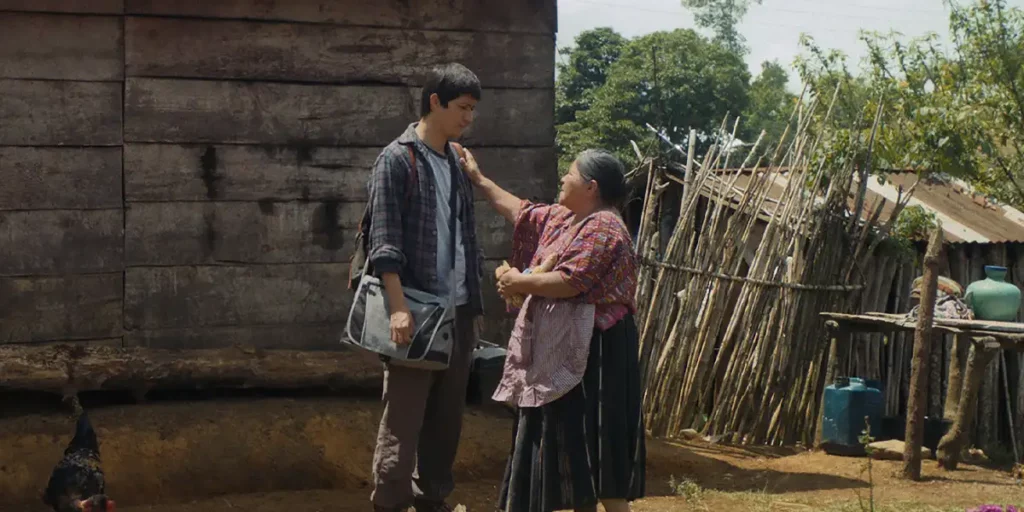In the remarkably restrained film Our Mothers, César Diaz highlights the historical suffering and present day pain caused by the Guatemalan Civil War.
Director: César Diaz
Genre: Drama
Run Time: 78′
UK Release: May 10, 2024 in
Where to watch: in cinemas
Our Mothers (Nuestras Madres) might be set in 2018, but it is as much rooted in the past of Guatemala as it is the present. History and modern day intertwine for every character on screen; memories from the 1980s are stifled, never forgotten, or uprooted, informing decisions made many decades later.
Remnants of the Guatemalan Civil War, which was fought from 1960 to 1996, are everywhere, in everyday conversations, work, and on the radio. In Our Mothers, director/writer César Diaz assuredly captures this all-consuming, country-wide grief, unsparingly bearing the open wounds of his home country.
Ernesto’s (an impressive Armando Espitia, Latido) job is not like others; the young man works as an anthropologist for the Forensic Foundation, excavating graves and exhuming victims of the war. He lives at home with his mother Cristina (an equally magnetic Emma Dib, The Blue Room), and his father is absent. The fact that Ernesto is so busy is indicative of the scope of atrocities and genocide that was committed by the Guatemalan government. Our Mothers starts and ends with an aerial shot of exhumed bones being laid out, a painstaking process necessary to find some form of peace for the survivors of the war.
After Ernesto is approached by a woman searching for her husband’s grave, he thinks he may have uncovered a clue as to the whereabouts of his own father, who he believes to have been a guerrilla in the war. So begins a quest for peace and closure, something that Ernesto dreams about but which is harder in practice than in thought. Diaz charts the present day events of Our Mothers with an impressive restraint and rigid form. The story is told in a matter-of-fact, observational way, straightforwardly framed in order to allow the messages to be told without sensationalism. It is the right tact to use to tell such a dark story.
With DOP Virginie Surdej (The Blue Caftan), Diaz concocts an immensely powerful film, carefully enhanced further by Rémi Boubal’s (Plan 75) sparingly used but utterly haunting original score. Beautiful landscapes of this Central American country take on a morbid air, as fields are host to an unknown amount of bodies and mass graves. Everything on screen in Our Mothers feels authentic, and this realism extends to the two central performances of Espitia and Dib, who both give layered and subtle performances of immense emotion. Dib’s Cristina wants to forget the atrocities, whilst Espitia’s Ernesto can’t do anything but be consumed by the memories and the lack of answers. We see the varying ways in which different people deal with such intense loss and injustice.
Diaz’s background as a documentarian—his previous two films, Territorio liberado (2014) and Pourquoi les hommes brûlent-ils? (2010) are both of the genre—comes across clearly in Our Mothers, and in many ways, his latest film may have worked better in a wholly non-fiction format. The characters, whilst impressively portrayed by the actors, aren’t hugely well-drawn, whilst the actual plotting can feel flimsy, held up by the respectful portrayal of the Guatemalan Civil War. Our Mothers has some incredibly powerful moments, but they are not necessarily tied together by a cohesive, flowing narrative. Nevertheless, Our Mothers remains a vital and compelling watch, as well as a powerful cry for necessary justice against a dictatorship.
Our Mothers will be released in UK cinemas on May 10, 2024. Read our reviews of César Diaz’s Mexico 86 and Raíz (Through Rocks and Clouds), and Guatemalan film Cadejo Blanco!

